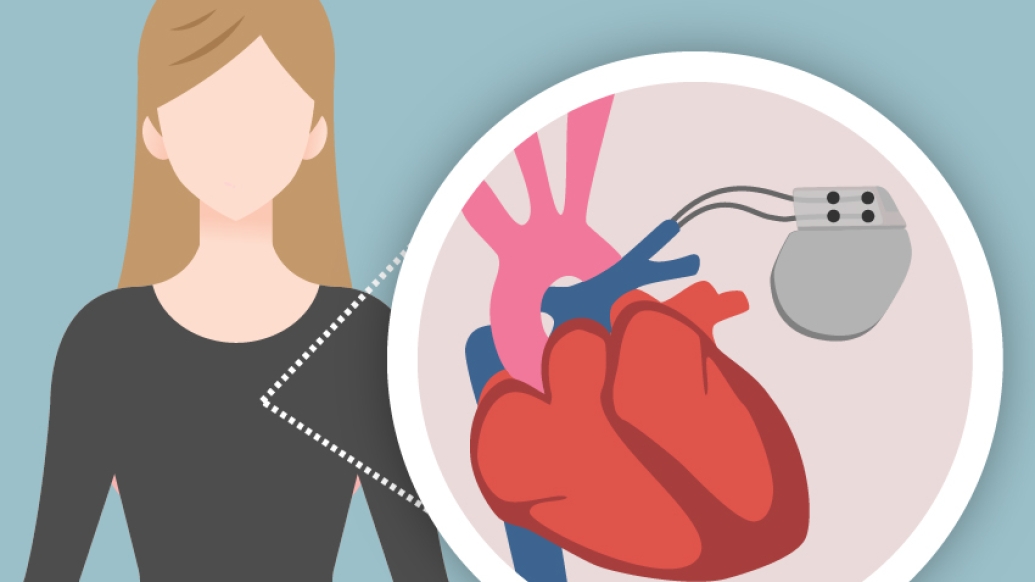Although both genders are at equal risk of arrhythmia, women face unique challenges from a corrective ICD device. Here’s what to know.
7:00 AM
Author |

An implantable cardioverter-defibrillator, or ICD, is an electronic device that provides immediate, lifesaving therapy for the abnormal heart rhythm known as arrhythmia.
LISTEN UP: Add the new Michigan Medicine News Break to your Alexa-enabled device, or subscribe to our daily audio updates on iTunes, Google Play and Stitcher.
Slightly smaller and thinner than a pager, an ICD can detect an arrhythmia and deliver an electric shock to restore a normal heartbeat. It can also act as a pacemaker if the heart is beating too slowly.
Men and women are equally at risk for developing arrhythmias. For adults, the most common cause is coronary artery disease leading to ischemic cardiomyopathy, which occurs when the heart can't pump enough blood to the rest of the body.
When it comes to ICDs, however, women have several related risks and concerns unique to their bodies.
Here are a few questions I hear often and the advice I give:
Can I have routine mammograms with an ICD?
Depending on your ICD placement, the device may interfere with imaging of breast tissue and may require additional testing for optimal results, such as a possible follow-up ultrasound.
MORE FROM MICHIGAN: Sign up for our weekly newsletter
Further, the presence of an ICD (typically in the left or right upper chest area), may make the imaging of the breast more uncomfortable, but it will not cause damage to the device.
Can I wear a bra after my ICD is implanted?
Yes. Depending on your ICD placement, a bra strap may feel uncomfortable on your new incision. Women with large breasts may feel the weight of their breasts causes discomfort at the incision site; a bra or a larger sports bra can be helpful.
If the bra strap is an issue, temporary use of a feminine napkin placed along the bra strap can provide a cushion to prevent the strap from rubbing or placing undue pressure on the fresh implant site.
Are there options for ICD placement?
If you have concerns about the placement of your ICD, this should be discussed with your electrophysiologist prior to the device implant or generator replacement.
SEE ALSO: What to Expect at Airport Security with a Defibrillator
Many times, a plastic surgeon will need to be consulted, depending on the placement options that are considered — such as under the breast, armpit area or in the upper chest and under the muscle or abdominal areas.
Traditionally, devices are placed subcutaneously (under the skin and fat tissue) in the upper left or right chest area.
Can I get pregnant with an ICD?
Yes. If you are planning to become pregnant it is recommended that you discuss this with your cardiologist or electrophysiologist. You may require medications that are not recommended during pregnancy.
Depending on your underlying health condition, becoming pregnant may put your own safety and well-being at risk. Further, if your condition was inherited, you may want to consider genetic counseling and testing to understand possible risks for your offspring.
However, many women have successfully become pregnant and undergone natural childbirth.

Explore a variety of health care news & stories by visiting the Health Lab home page for more articles.

Department of Communication at Michigan Medicine
Want top health & research news weekly? Sign up for Health Lab’s newsletters today!





